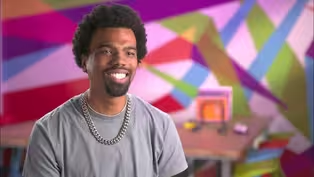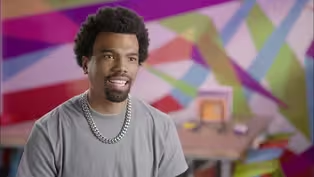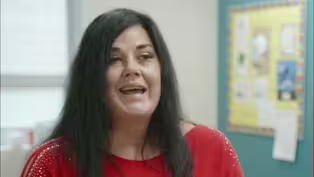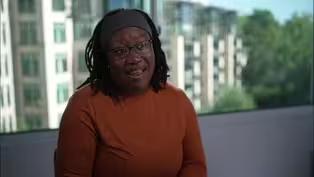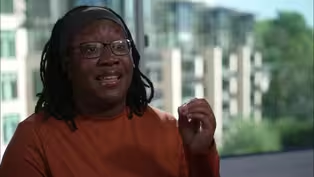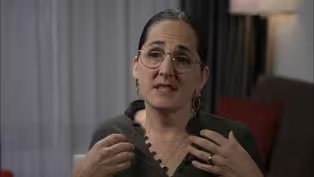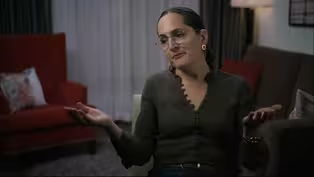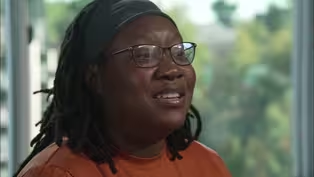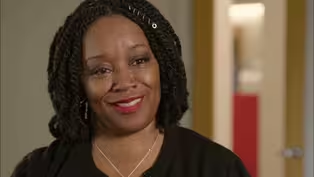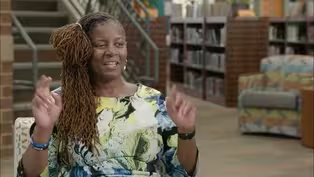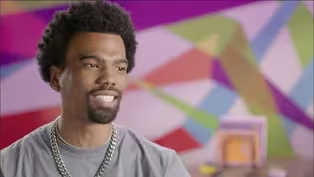School Discipline & Zero Tolerance Policies
Clip | 5m 16sVideo has Closed Captions
Jameela Conway-Turner explains the impact of Zero Tolerance discipline policies.
Jameela Conway-Turner, PhD, MESA Partnership Lead and Senior Researcher, Regional Educational Laboratory Midwest explains the impact of Zero Tolerance discipline policies as schools implement multi-tiered systems of support to address behavioral issues.
Problems playing video? | Closed Captioning Feedback
Problems playing video? | Closed Captioning Feedback
School Discipline & Zero Tolerance Policies
Clip | 5m 16sVideo has Closed Captions
Jameela Conway-Turner, PhD, MESA Partnership Lead and Senior Researcher, Regional Educational Laboratory Midwest explains the impact of Zero Tolerance discipline policies as schools implement multi-tiered systems of support to address behavioral issues.
Problems playing video? | Closed Captioning Feedback
How to Watch
is available to stream on pbs.org and the free PBS App, available on iPhone, Apple TV, Android TV, Android smartphones, Amazon Fire TV, Amazon Fire Tablet, Roku, Samsung Smart TV, and Vizio.
[Music] the research on displine started to become a lot more prevalent around Zero Tolerance policies um so Zero Tolerance policy started um after the Coline shooting so after that shooting in high school which was horrible um people started to think try to think a lot more about school shootings and what's happening in schools and um what started to crop up or what's called Zero Tolerance policies or basically they were saying if you engage in certain behaviors then you automatically get suspended or expelled um and I think probably at the time it was for very serious behaviors very um violent behaviors but over time it's kind of EX expanded a little bit more to in um be include a lot more behaviors um so bullying so that Al that became um really big in their research as well in the last few decades and so that started to pull into zero intolerance policy so the first time you bully someone you get suspended and expelled um and then it just started to expand more so just generally speaking these policies um ha have taken place where for you know other kinds of behaviors that may be even less violent or less serious that students will get automatically suspended or expelled and so because of this uptick in this policy that happened um and the paying attention to these behaviors which was good we want to pay attention to the student student behaviors there has been an increase of um suspensions and expulsions and also an increase in these disparities that we're seeing in the data and so now I would say more recently people have been trying to move away from just automatically suspending and expelling students moving away from using that as a first line of defense versus a last line of defense and thinking about what are some other other more positive things that we can do to address disa Ary issues within the school rather than suspending and expelling both because a lot of students have gotten suspended and expelled which we know is not good for any student to be disconnected from their school in their classroom but also because of the disparities that we see um in the data so we definitely have to have a balance of preventive and intervention measures for behavior for sure I would say also that the percentage of students who are engaging and really dangerous Behavior violent Behavior even bringing a school a uh bringing a gun to school or fighting or doing things that are more violent is a small percentage of what's actually happening in a school and for the students who are engaging in the most violent behaviors yes they probably do need to be suspended or there needs to be some sort of consequence it and we still need to figure out what's going on for that student and do some sort of root cause to figure out what's going on what kind of supports do they need um so we do need systems in place to help students who are in that percent very small percentage um however that's not the majority of the students that are getting in trouble in school that's not the majority of students who are getting suspended in school mostly it's for things like talking back to a teacher for being kind of disrespectful whatever however somebody wants to interpret what being disrespectful means and those behaviors don't lead to the violent behaviors it's not like oh if you talk back to a teacher then that means that the next thing you not escalate in terms of your problem behaviors that we need to automatically like expend uh suspend or expel that student and so instead we need to be thinking about what do we do with those students how do we interpret that behavior um and a lot of it is trying to prevent the behavior from happening in the first place or intervening in a um in a non-punitive nonreactive way to what's going on visit us online at ideast stream.org welcome for more web extras links to resources and to watch the documentary you are welcome creating safe and supportive schools a production of idea stream public media
Teachers & Students: Fostering a Sense of Belonging
Video has Closed Captions
Clip | 2m 51s | Devon Carter offers insights about the value of teachers and students learning from each other. (2m 51s)
Supporting Teachers: It Takes a Village
Video has Closed Captions
Clip | 2m 25s | Devon Carter, PhD, discusses school and community supports to connect with students. (2m 25s)
Video has Closed Captions
Clip | 3m 58s | Ellen Sorm discusses the need to address student mental health issues. (3m 58s)
Video has Closed Captions
Clip | 7m 46s | Jameela Conway-Turner, PhD discusses the importance of feeling a sense of belonging. (7m 46s)
School Discipline & Zero Tolerance Policies
Video has Closed Captions
Clip | 5m 16s | Jameela Conway-Turner explains the impact of Zero Tolerance discipline policies. (5m 16s)
School Discipline & Multi-Tiered Systems of Support
Video has Closed Captions
Clip | 4m 29s | Greta Colombi discusses school discipline and the importance of a multi-tiered system of support. (4m 29s)
Link Between Positive School Climate and Positive Outcomes
Video has Closed Captions
Clip | 2m 42s | Greta Colombi discusses the link between positive school climate and positive outcomes. (2m 42s)
Inequities in School Discipline
Video has Closed Captions
Clip | 4m 8s | Jameela Conway-Turner, PhD discusses inequities in school discipline. (4m 8s)
Importance of Listening to Student Voices
Video has Closed Captions
Clip | 2m 26s | Dreama Mason Whitfield discusses the Scholar Voice/Student Voice project in Akron Public Schools. (2m 26s)
Culturally Responsive Teaching & Building Relationships with Students
Video has Closed Captions
Clip | 2m 34s | Constance Smith-Clemens discusses the value of applying culturally responsive teaching practices. (2m 34s)
Cultural Competency & Culturally Responsive Teaching
Video has Closed Captions
Clip | 1m 51s | Devon Carter, PhD discusses culturally responsive teaching practices. (1m 51s)
Providing Support for PBS.org
Learn Moreabout PBS online sponsorship
- News and Public Affairs

Top journalists deliver compelling original analysis of the hour's headlines.

- News and Public Affairs

FRONTLINE is investigative journalism that questions, explains and changes our world.












Support for PBS provided by:
